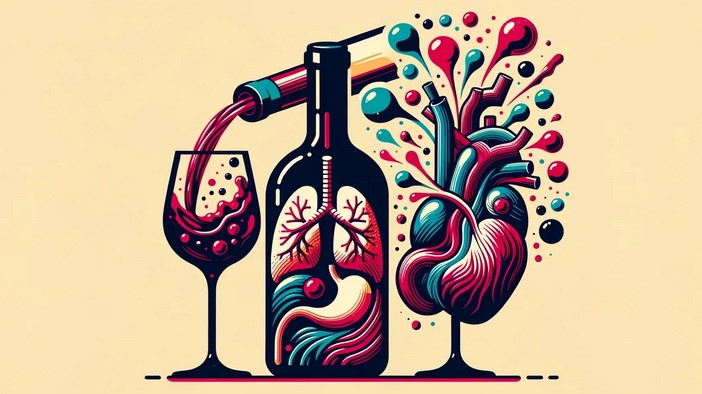Daily Archives: September 15, 2024
Alcohol Carcinogen: Exploring the Link Between Alcohol and Cancer

Source : https://d2jx2rerrg6sh3.cloudfront.net
Alcohol Carcinogen: Exploring the Link Between Alcohol and Cancer is an in-depth study into the correlation between alcohol consumption and the development of various types of cancer. This research aims to shed light on the carcinogenic properties of alcohol, examining how and why regular alcohol intake can lead to the mutation of healthy cells into cancerous ones. The study delves into the biological mechanisms involved, the types of cancer most commonly associated with alcohol, and the risk factors that may exacerbate this link. It also explores potential preventative measures and strategies for reducing alcohol-related cancer risks.
Unveiling the Truth: The Connection Between Alcohol and Cancer
Alcohol, a common beverage consumed worldwide, has been a part of human culture for thousands of years. However, in recent years, a growing body of scientific evidence has begun to shed light on the potential health risks associated with alcohol consumption, particularly its link to cancer. This article aims to explore the connection between alcohol and cancer, unveiling the truth behind this complex relationship.
Alcohol is classified as a Group 1 carcinogen by the International Agency for Research on Cancer (IARC), the cancer agency of the World Health Organization. This classification places alcohol in the same category as tobacco and asbestos, indicating that there is sufficient evidence to suggest that alcohol can cause cancer in humans. The types of cancer most commonly associated with alcohol consumption include mouth, throat, esophagus, liver, colon, and breast cancer.
The mechanism through which alcohol contributes to cancer development is multifaceted. When alcohol is consumed, it is metabolized in the body into a toxic chemical called acetaldehyde. Acetaldehyde can damage DNA and proteins, leading to cellular abnormalities and potentially triggering the onset of cancer. Additionally, alcohol can stimulate the body to produce certain hormones, such as estrogen, which is known to promote the growth of certain types of cancer, including breast cancer.
Moreover, alcohol can act as a solvent, enhancing the body’s absorption of other carcinogens. For instance, in the case of smokers who also consume alcohol, the alcohol can dissolve the harmful chemicals in tobacco smoke, making them more easily absorbed in the mouth and throat and thereby increasing the risk of developing oral and throat cancers.
It’s important to note that the risk of developing cancer increases with the amount of alcohol consumed. Even moderate drinking can elevate cancer risk, but heavy drinkers are at a significantly higher risk. According to the American Cancer Society, those who consume two to three drinks per day have about a 20% higher risk compared to non-drinkers.
However, it’s not all doom and gloom. The good news is that the risk of developing alcohol-related cancers decreases when alcohol consumption is reduced or eliminated. A study published in the British Medical Journal found that reducing alcohol intake, even for heavy drinkers, can lower cancer risk over time.
In conclusion, the link between alcohol and cancer is undeniable. Alcohol is a proven carcinogen that can contribute to the development of several types of cancer. The risk increases with the amount of alcohol consumed, but can be mitigated by reducing or eliminating alcohol intake. As with many aspects of health, moderation is key. It’s crucial for individuals to be aware of the potential risks associated with alcohol consumption and to make informed decisions about their drinking habits. While alcohol may be a part of our social fabric, understanding its potential health implications is essential in making choices that support long-term health and wellbeing.In conclusion, numerous studies have established a significant link between alcohol consumption and an increased risk of various types of cancer. Alcohol acts as a carcinogen, particularly in tissues it comes into direct contact with, such as the mouth, throat, and esophagus. It can also lead to liver, breast, and colorectal cancer. The risk increases with the amount of alcohol consumed over time. Therefore, limiting or avoiding alcohol intake can significantly reduce the risk of developing these types of cancers.





